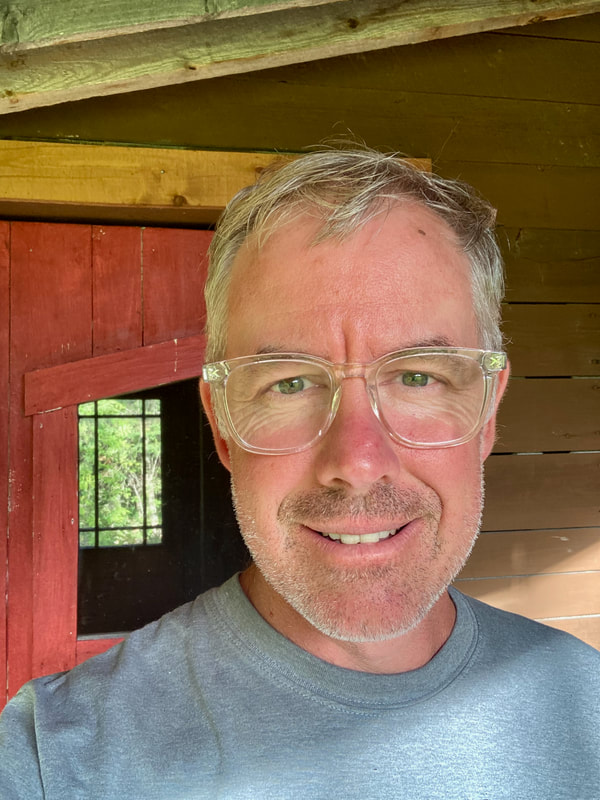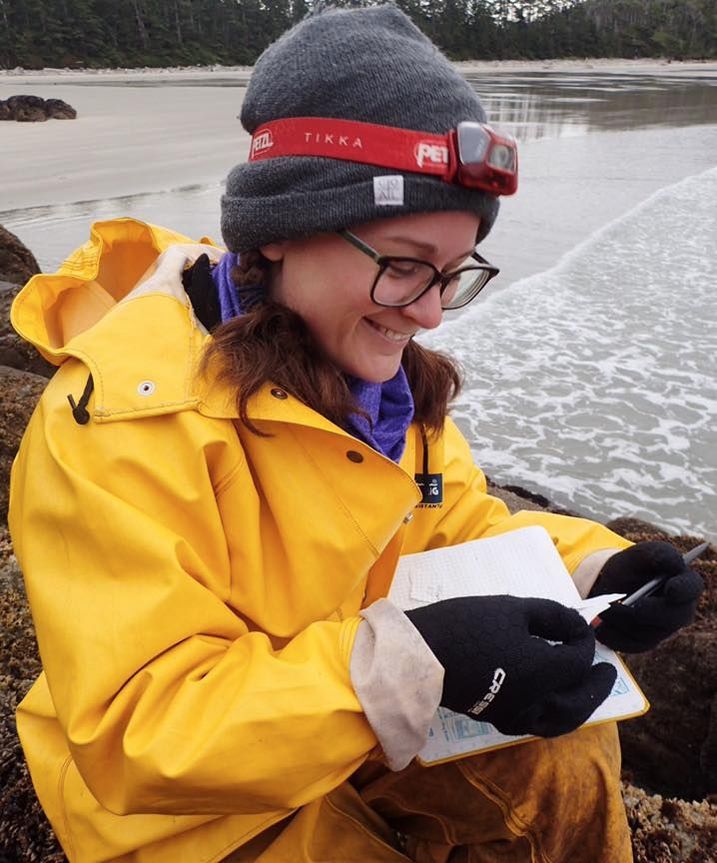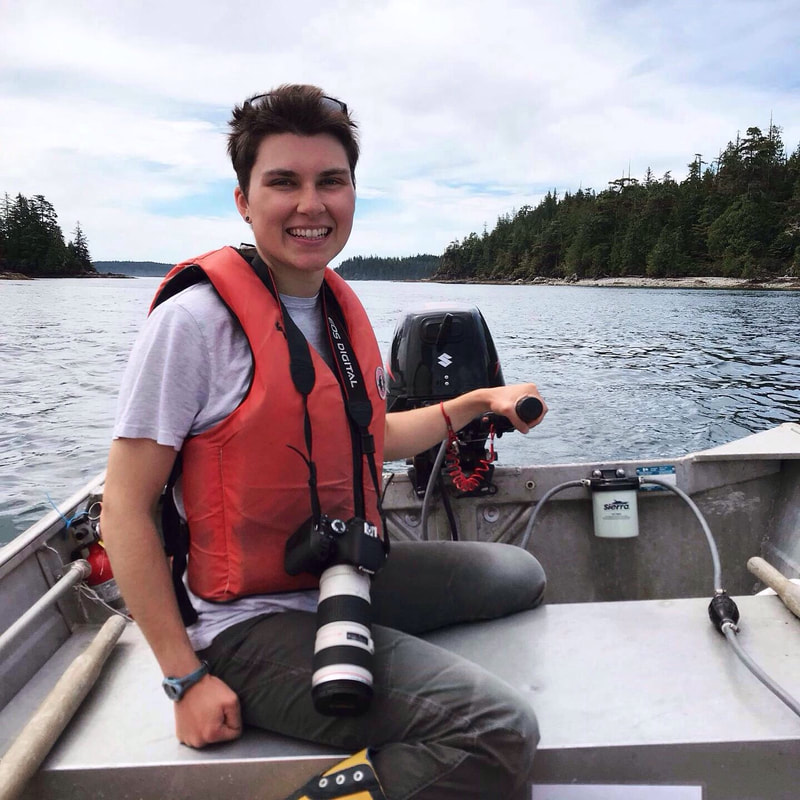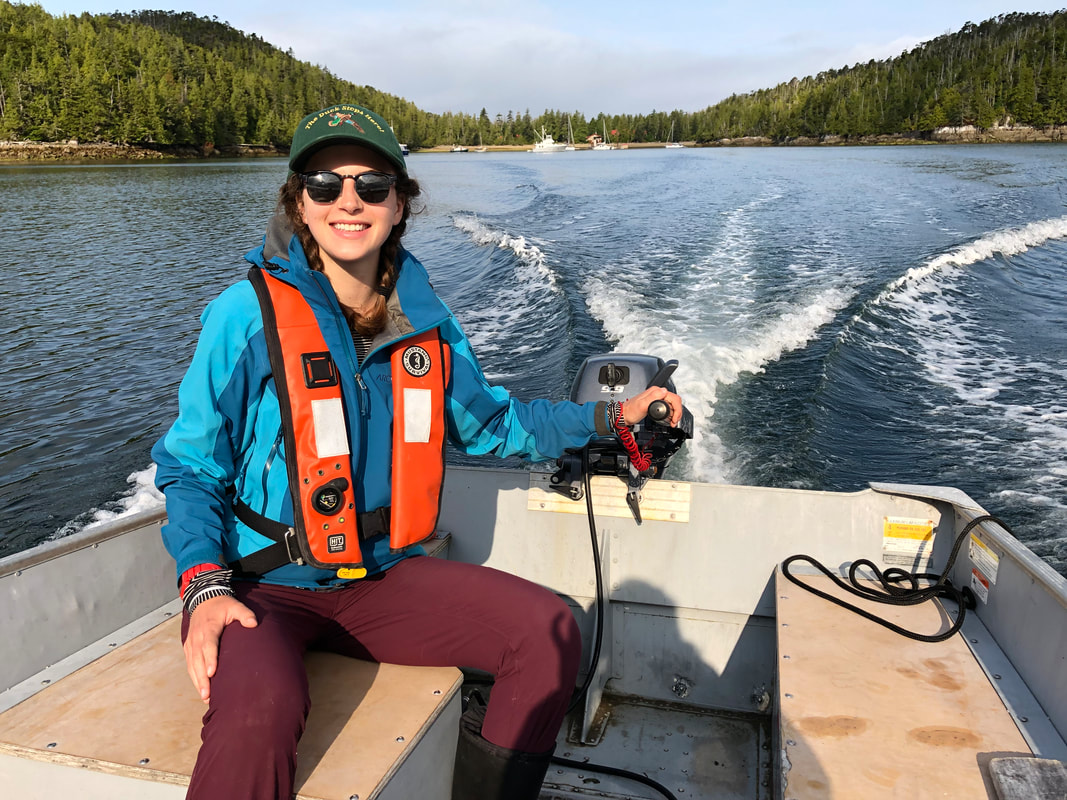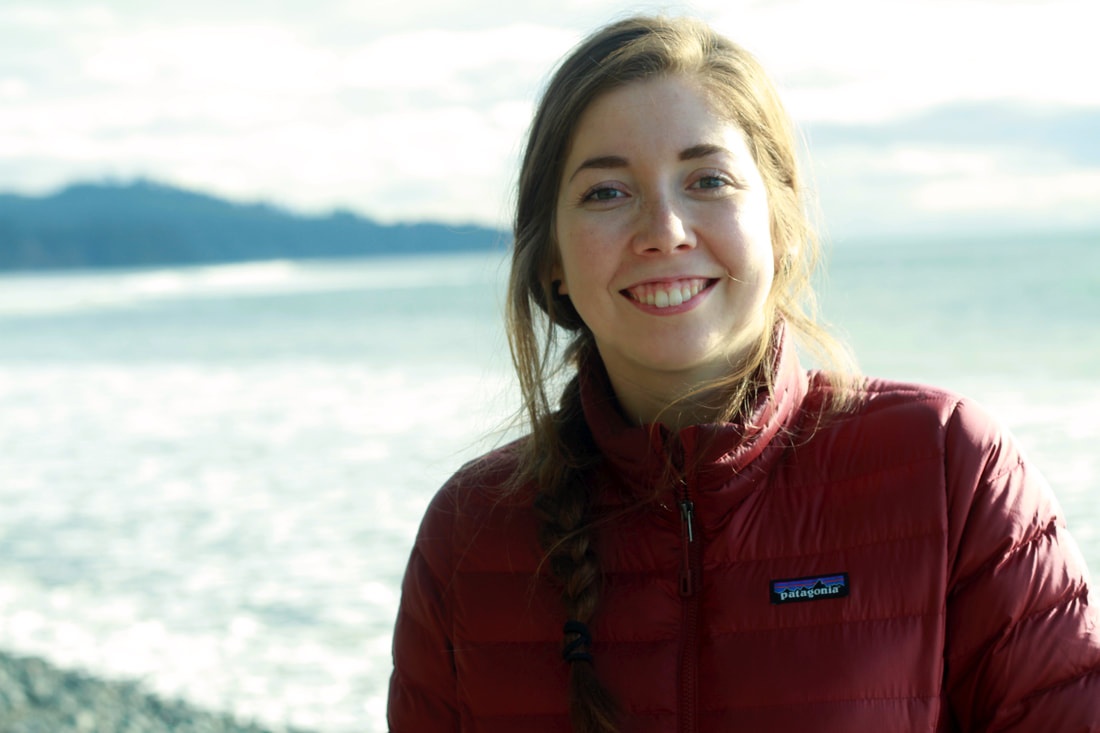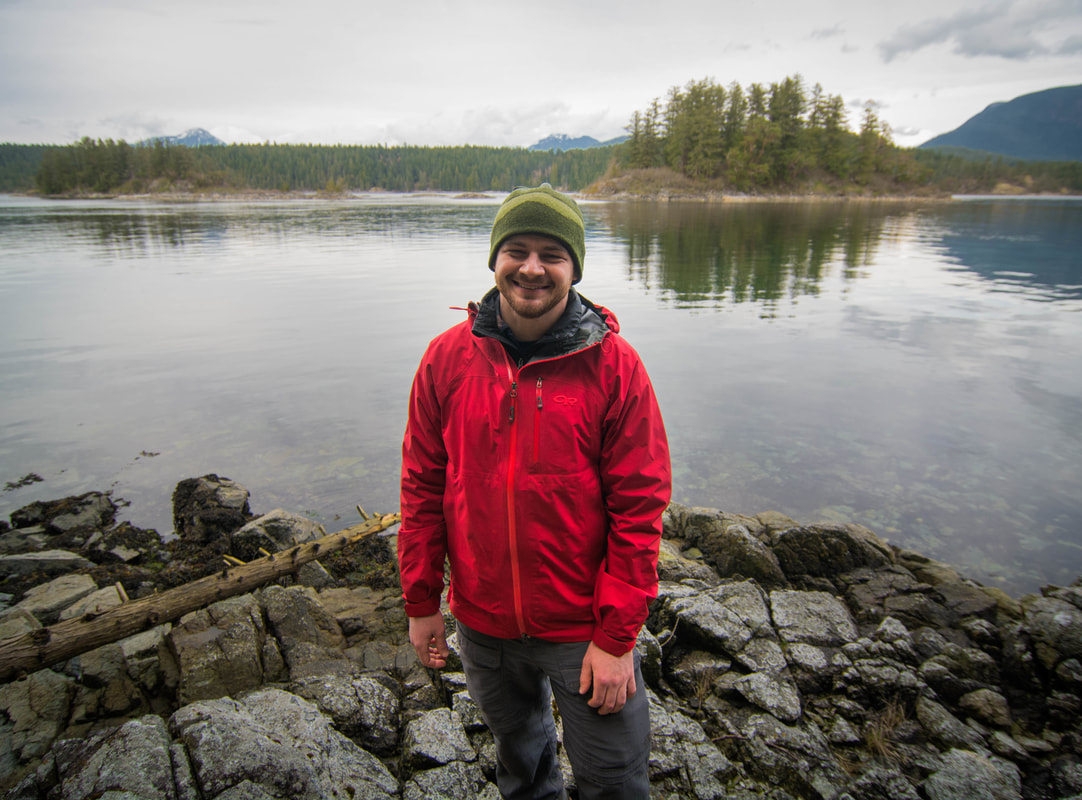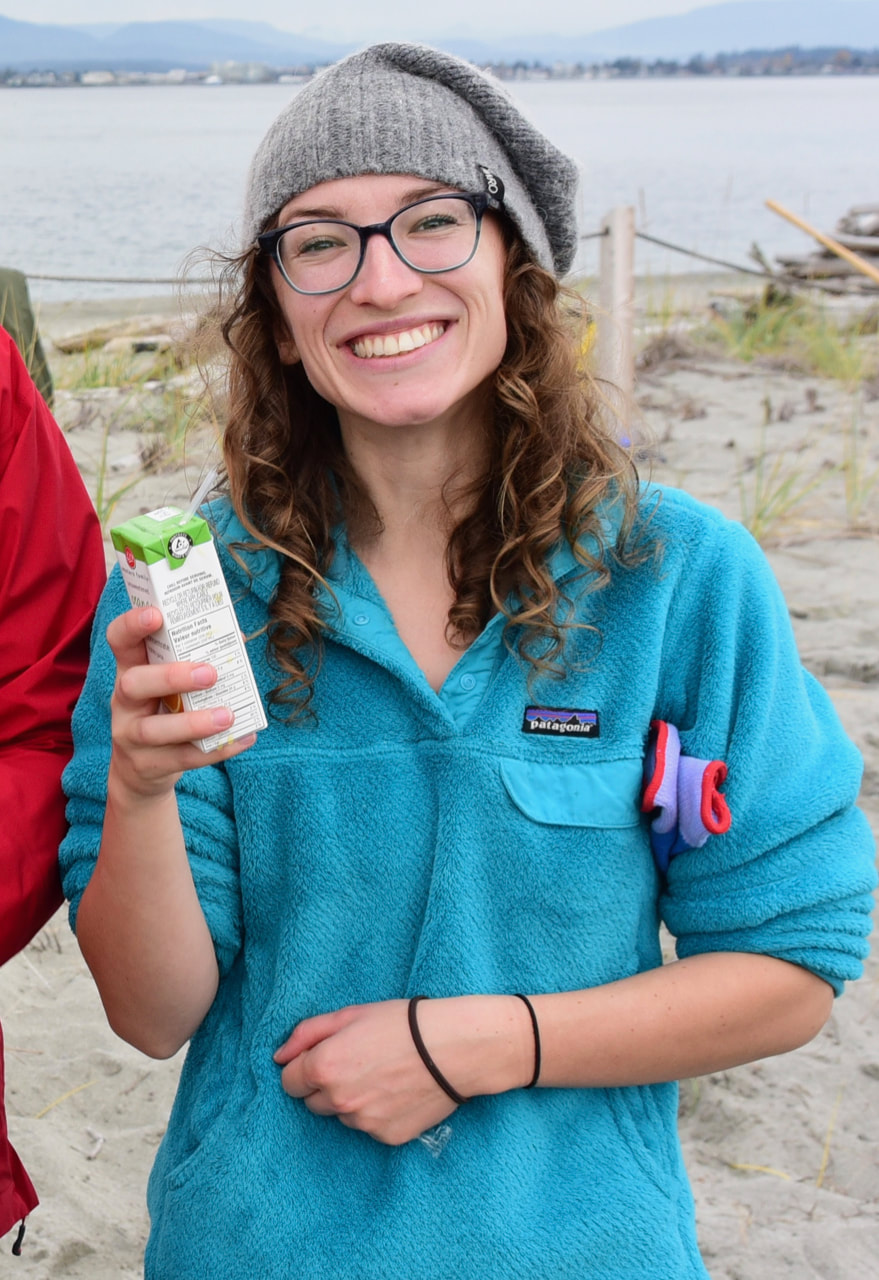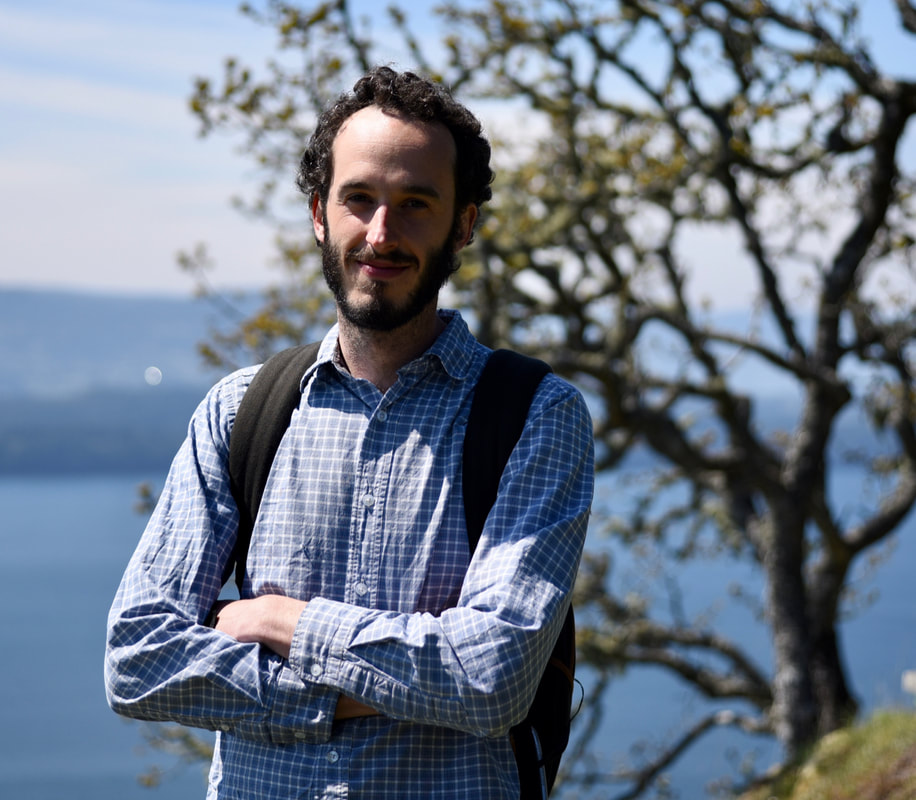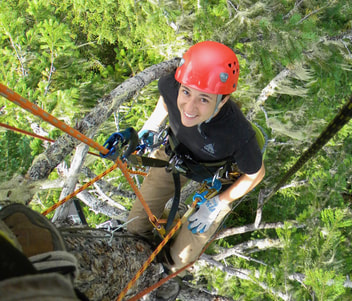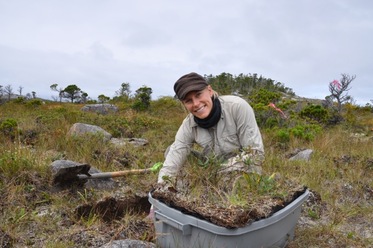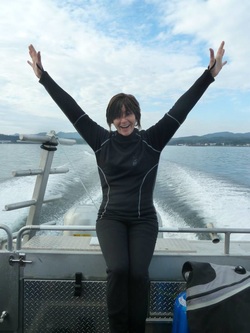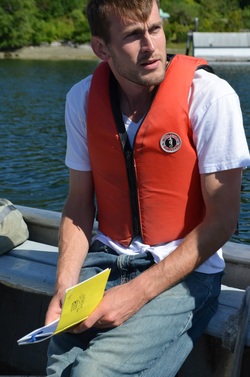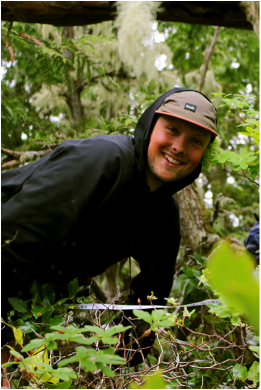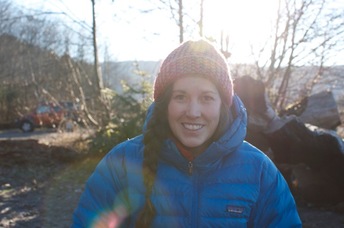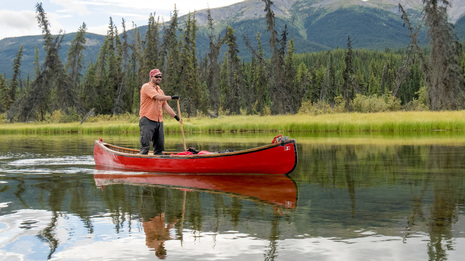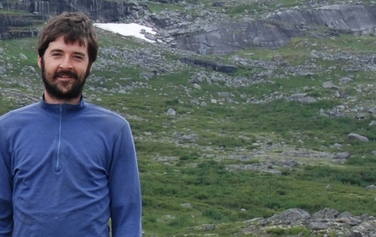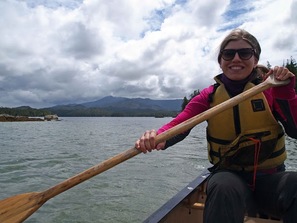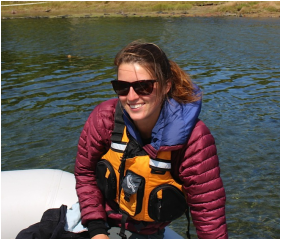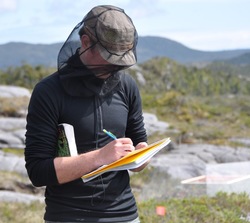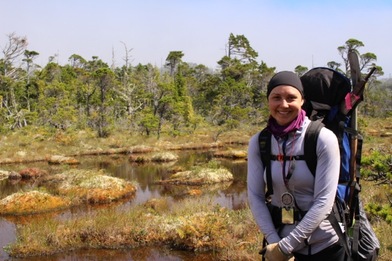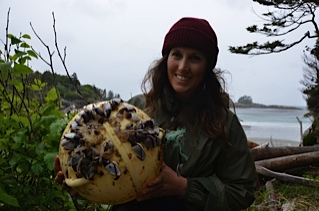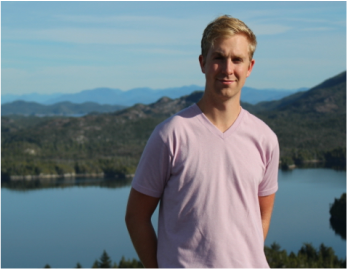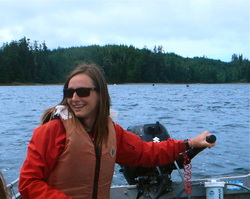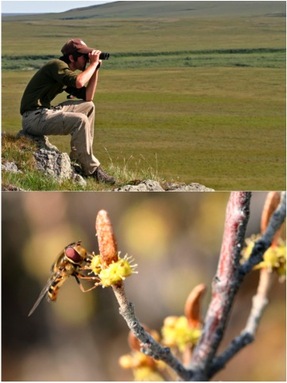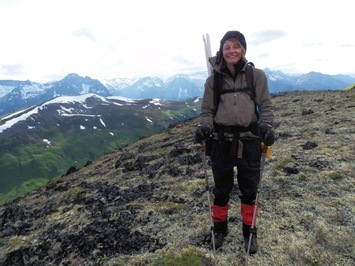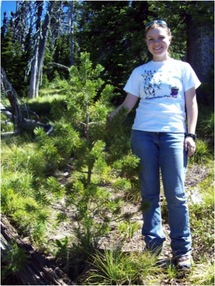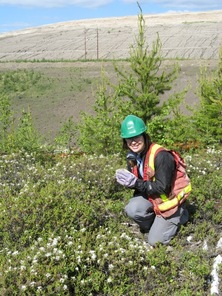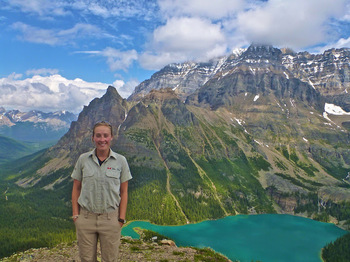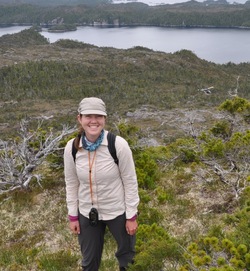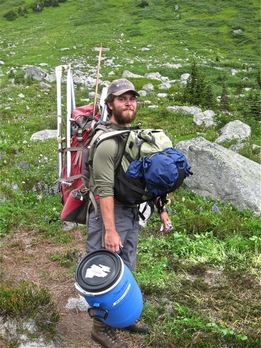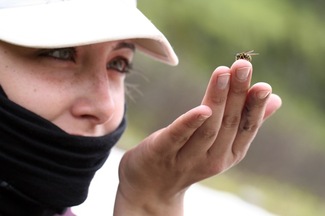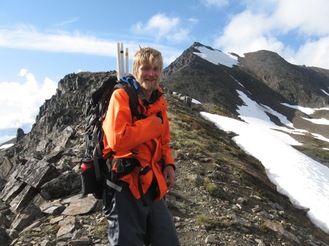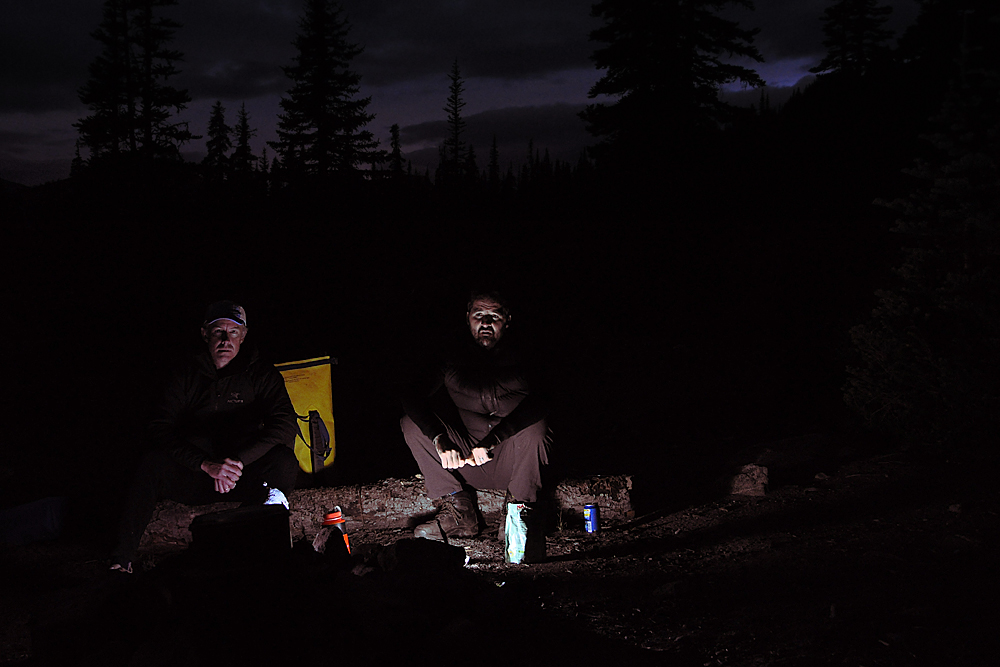People
|
Dr. Brian Starzomski
Ian McTaggart Cowan Professor of Biodiversity Conservation and Ecological Restoration School of Environmental Studies University of Victoria https://inaturalist.ca/people/bstarzomski Brian is Ian McTaggart Cowan Professor in the School of Environmental Studies. Originally from Nova Scotia, he loves to work in a variety of systems to study biodiversity questions, and is broadly trained as a community ecologist and conservation biologist. His research focuses on biodiversity structure and dynamics, and seeks to link theory and empirical approaches. A current research focus is in exploring long-term human-environment interactions on the Central Coast of British Columbia, out of the Hakai Institute. Another is partnering with collaborators like BC Parks and John Reynolds at SFU to collect and analyze community science biodiversity observations, especially using iNaturalist. Brian doesn't have an organismal bias to his research, and is comfortable working across the taxonomic spectrum, from insects to plants to birds. He's proud to have recently won a Teaching Excellence awards at UVic (just like his Environmental Studies colleagues Nancy Turner, Kara Shaw, and James Rowe!). He was Director of the School of Environmental Studies from 2019-2023. |
Nathan Earley, PhD student
Nathan is doing research on how best to use community science to understand biodiversity. He is a remarkable scientific natural historian, with an incredible keen eye for gall wasps and just about everything you can imagine.
Nathan is doing research on how best to use community science to understand biodiversity. He is a remarkable scientific natural historian, with an incredible keen eye for gall wasps and just about everything you can imagine.
Dan Tucker, PhD student
Dan is working on bryophyte trait ecology, including work in Costa Rica and British Columbia. In general he looks at how moss and liverwort traits impact their ability to get moisture from the air, whether from clouds in the Monteverde Cloud Forest, or from fog in Coastal BC.
Dan is working on bryophyte trait ecology, including work in Costa Rica and British Columbia. In general he looks at how moss and liverwort traits impact their ability to get moisture from the air, whether from clouds in the Monteverde Cloud Forest, or from fog in Coastal BC.
Ellyne Geurts, MSc. MSc student, finished 2023
Ellyne worked on community science data for her MSc (where as part of the big BC Biodiversity Program she also work with John Reynolds), looking at how spatial biases in the way we collect community science observations (like in iNaturalist), impact our ability to understand the true patterns in the data. She wrote 2 really awesome papers on trail bias in iNat data (here) and across the entire province of BC (here). She did a spell as an ecologist at Grasslands National Park, and is now doing a PhD at the University of Gottingen.
Ellyne worked on community science data for her MSc (where as part of the big BC Biodiversity Program she also work with John Reynolds), looking at how spatial biases in the way we collect community science observations (like in iNaturalist), impact our ability to understand the true patterns in the data. She wrote 2 really awesome papers on trail bias in iNat data (here) and across the entire province of BC (here). She did a spell as an ecologist at Grasslands National Park, and is now doing a PhD at the University of Gottingen.
|
Dr. Norah Brown, PhD, Postdoc finished Spring 2020
Norah joined the lab in the Spring of 2018 to work on the 100Islands Project, our big collaborative project with SFU, UVic, and the Hakai Institute. Norah is now working on creating food web models from a huge data set across the islands of BC's Central Coast, though she comes from a PhD on ocean acidification in Chris Harley's group at UBC. Norah is an excellent quantitative ecologist and clever statistician, massively smart, and a great foosball player (which brings pride rather than shame to the lab in every School of Environmental Studies showdown). Norah has moved back to the mainland is doing awesome work with DFO :). |
|
Gabe Schepens, MSc graduate 2022
Gabe joined us in September 2019 from the University of Alberta via what seemed like dozens of fantastic bits of field experience all over the world. Gabe is full of awesome ideas, and carves a mean pumpkin. They also have killer iNaturalist observations, growing quickly. Gabe did a fabulous study of landscape change in the Bighorn Region of Alberta, finishing their MSc in Spring 2022. They've taken those amazing analysis chops to work with the Yellowstone to Yukon Conservation Initiative, DFO, and CWS. |
|
Geneviève Reynolds, MSc graduate 2022
Everybody this year is in to these "driving a boat" pics. I get it: we love driving boats, and boats get you to such cool places. Everything on the Central Coast is determined by how well you can get around by boat. So Geneviève is showing us her awesome boat chops here as she preps for her MSc research on the Central Coast/Great Bear Rainforest, looking at how forest dynamics are driven by the long-term ecological legacies of people in the landscape. She's got cool ideas, drives a mean boat (see: photo), and is really awesome with mosses (check her iNat). It's a superb package! Can't wait to see what she learns on the coast! Geneviève finished her MSc in July 2022 and is now working for the Central Coast Indigenous Resource Alliance! |
|
Kalina Hunter, MSc graduate 2021
Kalina is a huge fan of BC's Central Coast (aren't we all!). She was an integral part of the 100 Islands Project as a field assistant in 2017, and then has joined the lab to work on distributions of culturally important plants on the outer islands through to the mainland between Campbell and Calvert islands. She's wonderfully good at bashing through salal, collecting otter ords, and keeping the lab in great spirits. She did a wonderful MSc and is now working at Gulf Islands National Park Reserve. |
|
Kyle Nelson, MSc graduate 2023
Kyle is mad about bats. He's studied bats in Waterton Lake National Park, in Gulf Islands National Park (where he conducted some of his research in collaboration with Parks Canada) and at Ft Rodd Hill National Historic Site. He's been thinking a lot about how bats move in the Southern Gulf Islands, which we know almost nothing about, and he's hoping to understand so that we can figure out what may happen with the horrible bat-scourge of White nose syndrome in Coastal BC. Kyle is now working on bats throughout western North America from his new base in Colorado. |
|
Julie Galloway, MSc graduate 2023
Julie comes to the lab from the University of Waterloo, where she worked on a whole bunch of neat projects, mostly to do with birds. She is an absolute R whiz, and learns and implements code faster than should be humanly possible. She's also great in the field, despite the huge computer time she's committed to for her MSc. thesis on sea-level rise and bird habitat in the lower Fraser Valley and southern Gulf islands. Julie finished up in 2023 :) |
|
Andrew Simon, MSc graduate 2021
Andrew started in the lab in September 2017. He's a full-time resident of Galiano island, and has done a wonderful job of curating the Biodiversity Galiano Project, which collects species observations from this very diverse southern Gulf Island. Andrew is doing research on plant-pollinator ecology in Coastal Douglas Fir ecosystems. In a lab of excellent scientific natural historians, he was one of the best. Andrew is a co-founder/leader of the IMERSS projects, and a PhD student at the University of Alberta. Becky Miller, MSc Graduate, Spring 2019
Becky joined us in September 2016 fresh from Oregon State University. She has loads of experience in forests and fire research in the Pacific Northwest and the drier interior of Oregon and Washington states, but somehow also loves the wet Central Coast. She was an able field assistant on the 100 Islands project summer 2016, and followed that up with work on long-term human impacts on island biodiversity for a MSc project which she finished in Spring 2019. Now she works with Parks Canada in Gulf Islands National Park Reserve :) Kira Hoffman, PhD Graduate! Finished Feb 2018 :)
Kira Hoffman spends most of her time in the bogs and forests of Calvert and Hecate Islands in the Great Bear Rainforest. There she studies how fire has impacted these hypermaritime (very wet) systems. Some places get much more than 4m of rain per year! But they still burn: Kira is trying to figure out how and why. Although new to the coast, she is learning to love epic downpours and how to drive a boat. Check out her essay "The Bog" on Patagonia's "The Cleanest Line" You can find out more at Kira's website. |
|
Nancy Shackelford, PhD Graduate! Finished Jan 2018 :)
Nancy started in the Starzomski lab in September 2013. Her focus is on ecosystem resilience - in its many definitions and forms - and how it can be manipulated or impacted by human activity. She is interested both in the broad theoretical questions surrounding ecosystem managment and the on-the-ground applications of ecological science. She's good at stats, writing, and organizing people: a Texas Triple-threat. Also, she's off the the University of Colorado-Boulder for a post-doc. Yes, we're all jealous. Check out Nancy's website here Nancy is now assistant professor and Director of the Restoration of Natural Systems Program in the UVic School of Environmental Studies |
|
Jeff Macadams, MSc graduate! Finished March 2018 :)
Jeff started his MSc (co-supervised with Morgan Hocking) in Fall 2014. Jeff worked at the Hakai Institute on the Central Coast, examining invert and fish communities. He used environmental DNA techniques to study important fish species, especially Coho salmon. By all accounts Jeff is an excellent hockey ref, so he's likely as comfortable calling you for high-sticking as he is running a gel. He now works at EcoFish. |
|
Owen Fitzpatrick, MSc Graduate! Finished Feb 2018 :)
Owen is a long-standing member of the lab (see below), having spent several seasons as a field assistant in the Coast Range mountains and the bogs of the Central Coast. We finally convinced him to do his MSc. in the Starzomski lab in 2015. As part of the Hakai Institute's '100 Islands' project, he will be focusing on the effects of marine-derived subsidies and island biogeography variables on plant communities of the Central Coast. Owen is interested in restoration, ecology, botany, and place-based research. In his free time he enjoys reading, painting, and exploring Cascadia. |
|
Sara Wickham, MSc Graduate! Finished Dec 2017 :)
Sara started her MSc in September of 2015, but not before she got two field seasons under her belt on the beautiful Central Coast of BC. In the first, she was Kira Hoffman's able field assistant. In the second, she ran the seaweed show herself, where she measured hundreds of kg of algae and grasses washed ashore on various islands up and down the Central Coast. She's a big part of our collaborative '100 Islands' project, providing the marine-derived nutrients angle. Here's some more detail on that. She's one Delica down after the field season, but her new truck might even be nicer than our beloved lab truck, Bridget. She also has a cool new new website, and is a PhD student at the University of Waterloo! |
|
Wiebe Nijland, Post-doc, 100 Islands Program
Wiebe was a post-doc on the 100 islands project, co-supervised with Trisalyn Nelson at Arizona State University. He makes mean maps, analyzes all spatial data data like nobody's business, and can cook too! He also restored this awesome canoe which I personally find as impressive as his R skills. Wiebe has moved on to a faculty position at Utrect University. You can check out his website here and some info on his IR photography here |
|
Dr. Andrew Trant, Post-doc
Andrew is an ecologist interested in questions about how plants are responding to climate change in subarctic and alpine systems. Trees (and shrubs) are great for this because they leave behind an annual record that can tell us a lot about past climate, growth patterns and disturbance events. Andrew is also interested in understanding factors that control species' range limits and diversity in general. Here's a story on one of Andrew's projects Andrew is now associate professor in the Department of Environment and Resource Studies at the University of Waterloo! For more info see: andrewtrant.com |
|
Kelly Fretwell, Research Assistant
Kelly finished her undergrad here at UVic in 2012 and has worked in the Starzomski Lab digitizing the field notes and journals of Dr. Ian McTaggart-Cowan in partnership with the UVic library. She also manages one of our favourite projects, the Biodiversity of the Central Coast website. Here's a short piece from her fieldwork in the summer of 2015. She can do it all: write, take great pics, make websites and databases, and do great field work! Kelly has left for foggy pastures to do a Masters of Marine Management at Dalhousie University. |
|
Beatrice Proudfoot, Field and Research Assistant, 100 Islands Program, 2015-2016
Bea has been working in the lab since May 2015. She started as Sara Wickham's able seaweed field assistant, and has made herself indispensable through GIS, Biodiversity of the Central Coast work with Kelly, and collating gear and data for projects around the lab and beyond. Beatrice has moved all the way across the country to St. John's to do a MSc at Memorial University. Unlike other students in the lab (no names), she flew to the right city and didn't find herself accidentally in Saint John, NB. |
|
Owen Fitzpatrick, NSERC USRA 2012, back again in 2013 and a Research Assistant in 2014
We had Owen all over the place in 2012: starting in Victoria, he then spent half the summer on the Central Coast, and the other half wandering the Coast Range north of Whistler. Owen is careful in the field, thoughtful in the lab, and rocks a bug net all day long. We were sorry to lose him to the Ministry of Forests Research Branch last year, but glad he's back for more this summer. |
|
Chris Madsen, Research Assistant 2014
Chris worked with Julia Fisher as her field assistant on Julia's heavily kayak-based MSc project. He's interested in (and good at) everything, with great focus on the things he loves. He races kayaks with Brian and picks up languages with ease (French and Mandarin so far, and added Spanish in Colombia. He finsihed an MSc at McGill doing research in Panama, and now works as a biologist with the BC government). |
|
Julia Fisher, MSc.
Julia joined the Starzomski lab in 2013, a year after completing her undergraduate degree at the University of Victoria with majors in Biology and Environmental Studies. Julia is interested in how long term (past) human-landscape interactions influence present-day ecology. In the spring and summer of 2014 Julia conducted an observational study on past sites of habitation to explore how they impact present day plant communities. She now runs her own farm in the Cowichan Valley while also being a master carpenter. |
|
Jason Straka, MSc.
Jason worked on the ecology of plant-pollinator interactions in alpine and tundra ecosystems. He did a series of field experiments in the Coastal Mountains of BC to determine which factors contribute to pollen-limitation, or limit reproduction of plants in other ways. He examined how properties of plant-pollinator interactions might place pollination services at risk, or confer them resilience in the face of environmental change. Jason was the Parks Ecologist at Wood Buffalo National Park in Alberta/NWT and has now moved to the BC Conservation Data Centre. |
|
Katharine Baldwin-Corriveau, MSc.
Katharine looked at the processes that are behind the patterns of biodiversity we see in nature, how they relate to spatial scale, and how they might be impacted by climate change. To answer these questions, she conducted regional surveys of alpine plant diversity in southwestern British Columbia and is determining how the patterns observed can be explained using soil, climate and topographic variables. In her spare time, she enjoys digging up Ordovician and Devonian fossils, experimental baking, watching birds and mammals, and reading up on mermaid ecology and other mythologies. She did some really awesome work here at UVic and is now on to a MSc/MBA program in Museum Studies in Berkeley. |
|
Kimberly Carlson, MSc.
Kimberly studied how climate change has affected the endangered species whitebark pine (Pinus albicaulis) and the high-elevation plant communities associated with it. She spent two summers sampling whitebark pine stands across a precipitation gradient in the southern Coast Mountains of British Columbia to see how the tree community spatial patterns and understory vegetation differed over a range of climatic conditions. Kim is now a biologist in New Mexico, and yeah, we're all jealous. |
|
Sara Duncan, MSc.
Sara Duncan's research interests lie in applied ecological restoration research for land reclamation, inspired by the research needs she perceived while working as an environmental consultant. For her Masters project, she is researching potential transplant methods for terrestrial reindeer lichens (Cladonia spp.) on reclaimed mine sites. Her primary study site is on an open pit oil sand site near Fort McMurray, Alberta, on areas targeted to be reclaimed to lichen-jackpine ecosites. She has also been involved in lichen reclamation research in alpine caribou habitat in B.C., and hopes that the results of her research will be applicable to other reclamation and restoration projects in lichen habitats throughout B.C. and Canada. Sara was co-supervised by Val Schaefer, and is now a consulting biologist on southern Vancouver island. |
|
Sarah McArthur, BSc. (Hons) Honours student
Sarah is interested in factors that affect terrestrial bird abundance in alpine regions, and whether avian populations in the mountain parks are within their range of natural variation. During her employment terms with Parks Canada, she collected acoustic songbird data in Yoho and Kootenay National Parks to determine the relative abundance among species, habitats and areas. In the Starzomski Lab, she analyzed these data to determine the trends in bird popualtions and communities in the mountain bloc National Parks. Sarah finished an MSc. in the Reudink Lab at Thompson Rivers University. Seriously: check out that pic- Canada! |
|
Julia Bennett, Research Assistant 2013
Julia worked most closely with Kira in summer 2013 at the Hakai Beach Institute. She was great at data recording, pin drops, plant ID, and is always happy (no matter how bad the blackflies). We gave her the front seat in the helicopter for her birthday. She's moved to drier pastures as a consulting biologist in Calgary. |
|
Andrew Sheriff, Pacific Institute for Climate Solutions Intern 2011, back for more in 2012 and a bit of 2014
Andrew is a double lab alumni, having worked over two field seasons, getting to know the Coast Range logging roads and alpine meadows. We were sorry to lose him to the Yukon in 2013, but glad to have him back for some work at the wonderful Hakai Institute. Check out some of his observations here, and his sampling methodology here. |
|
Guthrie Gloag, Field Assistant 2011
Guthrie is a man of many talents, from chainsaw to modified biodiversity plot to wow, his art. He was key in making sure no one got attacked by a mountain goat and that all the data got collected. |
Coast Range treeline fieldwork, August 2015. Owen Fitzpatrick photo.
